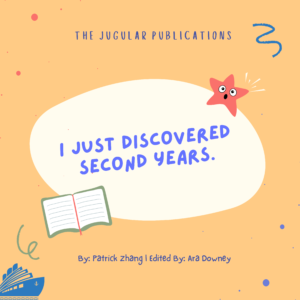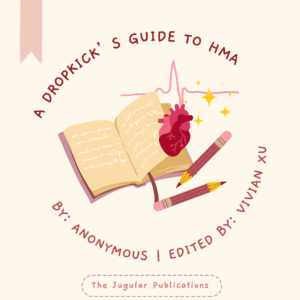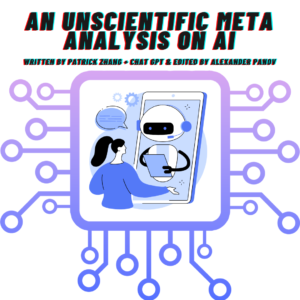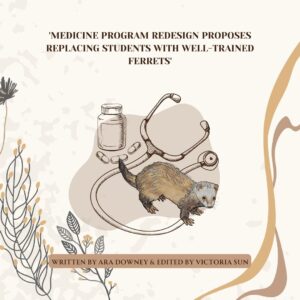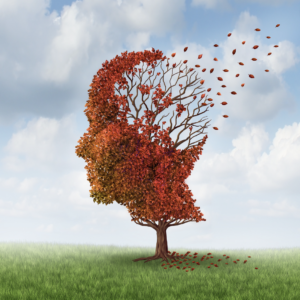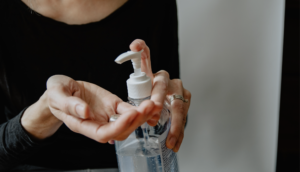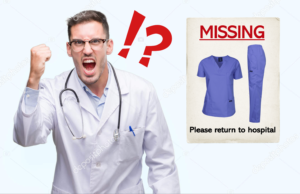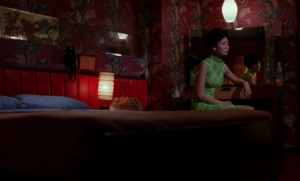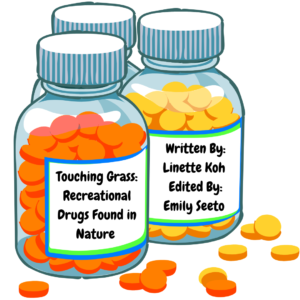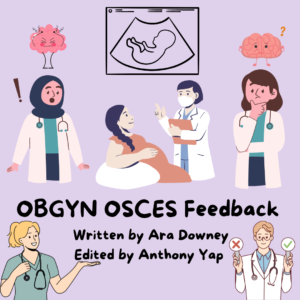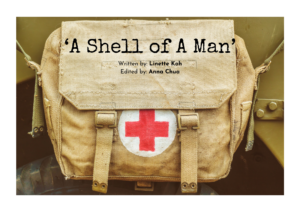
by JUMAANA ABDU (edited by ROSEMARY KIRK)
Following are some highs and lows from my first few weeks as a third-year medical student. Medicine really does grant us the privilege of a most unique and intimate insight into human pain, crisis and – sometimes – hilarity. All patient ages have been changed, the dates hidden, and most of the details altered so as to preserve patient anonymity.
Entry 1
My first day at hospital, sitting in on ward conference, they discuss a relatively young woman who’s had a paraneoplastic stroke. She has to be taken off chemotherapy due to coagulative complications. The stroke affected her cognitively and her chances of being cured by radiation are <10%. The room is suddenly very solemn compared to the banter of a few minutes prior. Eventually, the registrar says, “So, I suppose the question is, are we proceeding with curative or palliative aims?” “Palliative,” says the consultant after beat.
Entry 2
I enter a department meeting late and there are no chairs. An old portly male doctor smiles and pats his lap for me to come sit.
Entry 3
In clinic, I meet a young, rural father who’s had his left arm amputated secondary to infective endocarditis. Talking about phantom pain he says, “If I close my eyes, I still have my whole left arm and hand. Sometimes, it feels like it’s being crushed under a brick. It’s excruciating and it’s imaginary.” He is left-handed and an electrician.
Entry 4
The son of a patient who has been on our ward for a number of weeks gifts the doctors with chocolates. He also gives the intern and registrar a small copy of “The Essential Jesus”. Curiously, he does not give one to the lovely consultant, though she is standing right there. Is this a compliment (You already have Jesus), or an insult (Girl, it’s too late for you)?
Entry 5
Looking for patients to examine, I meet Dr Google, a man with primary progressive MS. “Why would our immune system attack itself?” he asks me. He believes MS is caused by bacteria. According to a French study from the 1920s, a doctor cured 23 patients with supposed ‘MS’ by treating them for Chlamydia. I don’t know how to explain that, unlike with most things, the age of a research paper doesn’t necessarily make it more valuable or authentic. “Do you just believe everything they teach you at uni?” he asks me. Well, um, yeah. But I don’t say that. I tell him that critical analysis is an important part of medicine, but I am glad that he is allowing conventional treatment in the meantime. Science, ironically, relies on faith. Not everyone can individually run every single trial ever so they can “see it for themselves”. Anyway, this man’s MS is severe, his wife passed away a decade ago after years of battling cancer, and his brother died from cancer a few years after that. Concerned, I ask about his mood. It seems his stubborn determination translates vibrantly into his wellbeing. “I don’t see any point in being negative! I’ll look after myself as long as I can, I’ll eat out, I’ll see friends. Misery loves company. But who wants to live miserably?” Despite our disagreements, I like him a lot.
Entry 6
I notice a trend of sick married men who have no idea what is going on and don’t care because their helicopter devotee spouse is thanklessly commandeering their ship through the maelstrom of ill-health. One woman says to her newly-debilitated husband, “It’s ok, I know you would’ve done the same for me.” “No, I wouldn’t!” he says earnestly. “I’d have stayed home with the kids and left you to your parents.” She looks down at her hands and smiles uncomfortably.
Entry 7
A patient is admitted to our ward after having been found lying on his apartment floor by his roommate, who had returned from a month overseas. He had ostensibly been lying there for weeks. His kidneys are acutely injured from dehydration, and he has pressure ulcerations all over his body. This makes me very sad. Later that day, we see a different patient who is well into his 70s. The records claim he has a son still in high school. The doctors have a bit of a giggle.
Entry 8
A 90+ woman on our ward had another stroke overnight. Her son is there during our morning ward round and is brushing her hair back absentmindedly as she lies asleep and shuddering in her bed. He is old himself. He says he knows what her wishes are. She’d want to ‘sleep and not wake up’. “She’s a strong woman,” he says. “But she must hate to be like this.” The consultant is an amazingly compassionate woman. “I understand,” she says. “I know what I would want if it were my mum.” A mother never stops being your mother even when you’re 70. She is always this imposing formidable figure of unequalled reverence in your life, even when she is a frail little figure moaning softly under some blankets in a dim corner of the room. I call my mum as soon as I leave the ward.
Entry 9
In theatre, the surgeon chucks me some bone cement. “Good catch!” everyone sings in chorus. I feel like a superhero. The bone cement heats up considerably in my hands, and I am worried it will burn through my gloves. Later, I text my friends, “The surgeon chucked me some bone cement today. It was so hot!” They proceed to screenshot this and circulate it out of context, making all the lewd misinterpretations friends can so dependably be relied upon to make.
Entry 10
I meet my first scary registrar. Maybe it’s just his resting face or my nerves. When he realises he has been grilling me, he makes a joke: “Learn to introduce yourself better, that’s something you can reflect upon in your portfolio.” I agree, feeling like an idiot. He laughs unexpectedly. “I’m joking! Portfolios are bullsh*t.” It takes me a second but I manage to give a conciliatory laugh. The next day though, I still feel like a nuisance because when I show up at the clinic, he just looks at me and says: “Oh. You’re back.”
Entry 11
I meet my first scary consultant. Aforementioned registrar seeming friendlier by the second.
Entry 12
On ward rounds, we see the cutest old man I have ever laid eyes on. He is Japanese, well into his 90s, and has a wonderfully toothless grin. We speak to him using a translator. Asking about ADLs, the consultant says, “Who cooks at home?” His wife. “And the groceries?” Wife. “Tidying?” Wife. “Getting the paper? Going to the shops? Your clothes? Cleaning the bathroom? Taking out the trash?” All wife. “How old is she?” Eighty-six! The old man is grinning along with every other momentously impressed man in the room who is no doubt reminiscing about days gone by when women weren’t so goddamn insistent about having an actual life beyond popping out babies and being at their husbands’ every beck and call. The consultant just laughs and says, “Oh sh*t!” The old man doesn’t need a translation to find this funny.
Entry 13
I am having commitment issues regarding my ILP supervisor for next year. The guy I picked meets every criterion, he’s so lovely, and everyone highly recommends him. But what if I’m rushing, what if I should’ve gone with someone in O&G instead of paediatrics, what if there’s someone better out there? (I realise it’s a mercy that I don’t date).
I go to an info night. A sprightly young female doctor begins her presentation by raving about how much she loves O&G. I start to regret my decision to go with the paediatrics supervisor. The O&G is vibrant and sweet and beautiful. Suddenly, when asked about work-life balance, her face changes and she takes a step back like a bull preparing to charge. “Look, in O&G, everyone is either divorced or having an affair.” * EVERYONE IS EITHER DIVORCED OR HAVING AN AFFAIR. My jaw drops, along with every other jaw in the room. Then the paediatrics speaker comes up and talks about how everyone is so friendly and how job-sharing is really common if you want to take time to have a kid. Afterwards, I chat with her and mention the name of my supervisor. “Oh, he’s my research supervisor too! He’s amazing!” I feel great again. What a small world! Or maybe that’s just med.
*Disclaimer: I know O&Gs who are very happily married with children. People going through acutely difficult times often project their own unhappiness onto the world. That being said, when she started going on about divorce and affairs, you might as well have called me James Bond’s martini because I was shaken.
Entry 14
I tell a med student I want to be a paediatrician. He jokes, “Oh, are you a paedophile?”, which I find equal parts baffling and disturbing. Ironically, the next patient we visit is avidly watching the live sentencing of Cardinal Pell.
Entry 15
I am taking a history: “Have you ever used recreational drugs?” The patient, a very serene looking bookish man with a pleasant pair of glasses on, laughs and looks down. “Uh, just write: ‘Basically all of them’.”
Taking another history, my young patient reveals his wife passed away a few months ago after a long battle with illness in this same hospital. He tears up when he talks about her. “How are you coping?” I ask, but really, I don’t know what to say. He shakes his head and says, “Well, look…” but we are interrupted before he can continue. I feel awful for dredging up his grief, so after the interruption, I transition into asking about his hobbies as a roundabout way of assessing his mental health. He still plays soccer, reads all the time, and writes music, though he is shy about the latter. “What genre of music?” I ask, excited. He laughs and looks away modestly. “Oh, everything really. I like it all.” I think he will be ok.






